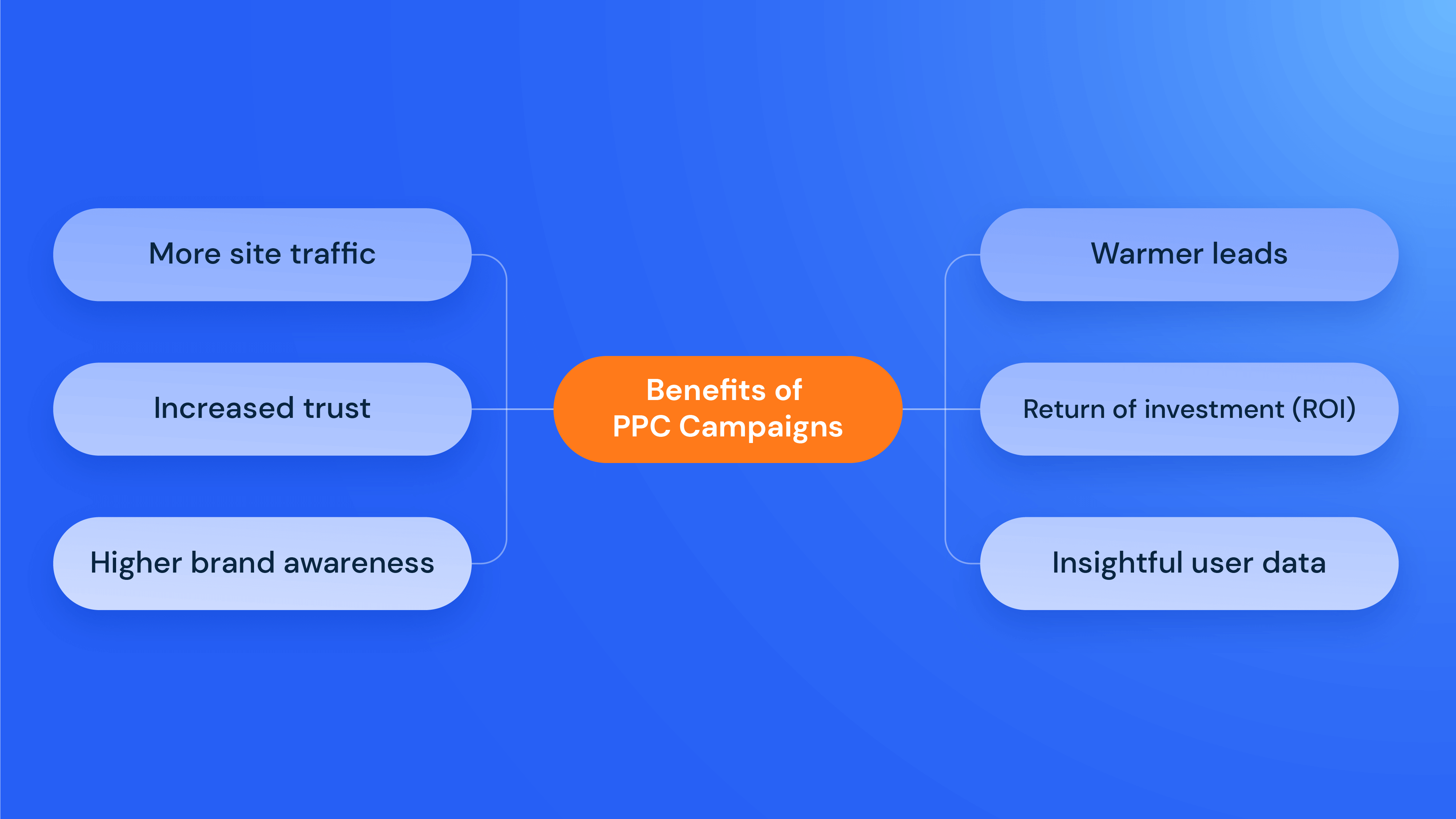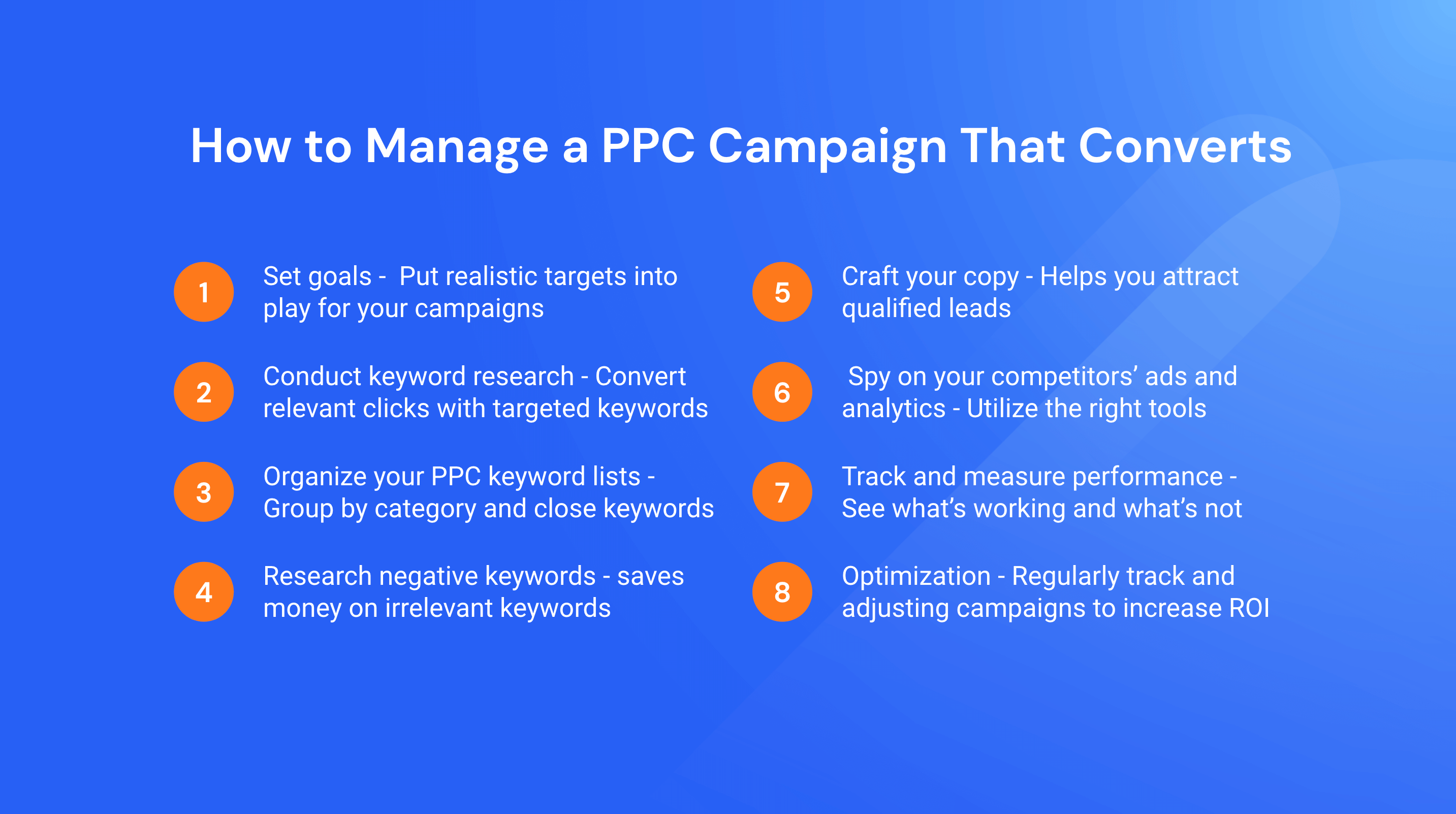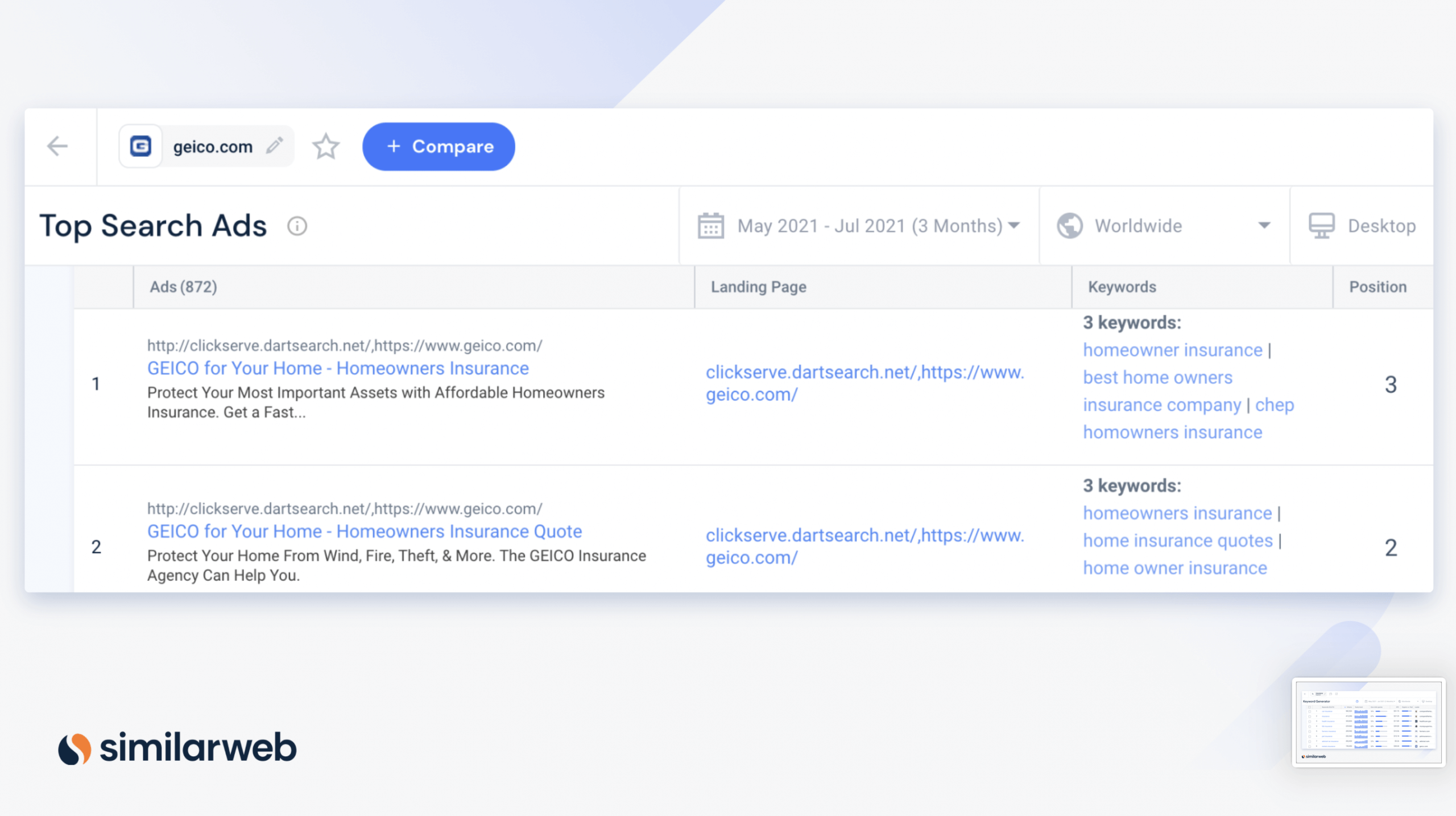PPC Campaign Management: 8 Essential Steps for Better Returns

Investing in the right PPC campaigns isn’t so different from investing in the right stock.
Actually, it’s probably easier. But here’s the point:
If you’re looking for powerful and consistent returns on your PPC campaigns, you should start with thorough research based on accurate data.
The benefits of your PPC advertising spend are only limited by your PPC campaign management and research.
Keep reading to find out how you can create the stage for exponential gains using powerful PPC analytics tools.
What is PPC campaign management?
PPC campaign management is all about driving impact from your PPC campaigns, including your preliminary research, campaign set-up, and ongoing optimization.
As with any digital marketing strategy, it’s about showing positive results. And if your strategy isn’t showing a strong return on investment (ROI) from your digital marketing budget, it’s time to switch it up.
What are the benefits of PPC campaigns?
With PPC campaigns, you pay per the number of clicks or site visitors and land prime real estate on platforms like search engines and platforms like Google and LinkedIn without earning them organically. Google Ads is by far the most popular PPC ad network, but there’s also Bing Ads, Facebook Ads, Linkedin Ads, and Taboola, among others.
Successful PPC campaigns and PPC marketing strategies offer many benefits, including:
- More site traffic
- Increased trust
- Heightened brand awareness
- Warmer leads
- Return on investment (ROI)
- Insightful user data
How to manage a PPC campaign that converts
Data-informed PPC campaign management will give you the insights you need to keep improving your results over time.
8 steps for successful PPC campaigns
Follow the steps below, and you’ll be well on your way to becoming an expert PPC manager.
1. Set goals (and be realistic)
Before you can achieve your goals, you need to set them.
How do you define success for your PPC campaigns?
Is it to gain 100% more website traffic in the next quarter? Increase sales conversions by 50%? Bring in $1 million of revenue? Boost newsletter subscribers by 300%? Or, something else entirely?
Pro tip: When setting your goal, make sure to be specific. Set a timeframe and identify the metrics you will track. Then schedule times to check in on your progress and adjust accordingly.
Remember to set realistic targets, too. If your goals are too outlandish, you are just setting your campaign up for failure.
2. Conduct keyword research
The right keywords will ensure your PPC ads are shown for the relevant search queries. You also need to keep competition in mind, as you can lose a big chunk of your budget when bidding on highly competitive keywords if those clicks don’t convert.
Start by making a seed list of all the keywords your target audience may be searching for. Next, you’ll need to evaluate them using a keyword analytics tool.
Google Adwords Keyword Planner is a tool to start with but to really hone in on better data and in-depth analysis, you’ll want to look into more advanced tools.
With Similarweb’s keyword overview page, for instance, you can immediately see vital keyword data at a glance, including (but not limited to):
- Search volume
- Visits
- Organic and paid traffic engagement
- Cost per click
- Keyword benchmarks by industry
- Keyword seasonality
- Additional keyword ideas
Keyword seasonality, for example, can give you insight into what time of year is best to bid on particular keywords. Some might be obvious, but this type of feature can be a huge asset for less obvious seasonal trends.
Beyond the time of year, it’s also very important to keep an eye on what your competition is doing. Odds are, you have competitors that have already optimized their PPC ad campaigns and have determined which display ads and keywords work best in your niche. You can save a lot of time researching and testing things out on your own, and instead, take a peek at what is working for your competition.
How? You can use Similarweb’s advanced tools to access important historical online advertising information on any company.
The most important metrics to look out for when investigating keywords for your PPC campaign are cost per click (CPC) and quality score. If the keyword has a high-quality score, this means the ad will cost less while ranking higher. Your maximum bid is multiplied by the quality score for your CPC.
We recommend using our 7-day keyword filter to access the freshest keyword info in order to refine and optimize your keywords in real time.
For each keyword you research, try to answer these four questions:
- Is the search volume high enough?
- Is the quality score good enough?
- Are those searching for that keyword likely to purchase from you (or meet whatever goals you set in step one?)
- Can you afford to use that keyword?
3. Organize your PPC keyword lists
Now that you have a nice list of relevant keywords for your PPC ad copy, you should group them into different ad groups based on category and keyword similarity.
For example, some keywords may only be relevant to one specific product you offer, so you’ll want to group these keywords together. Make sure each ad group is highly specific so that these groups will be as relevant to the ad you are running as possible to get a higher chance of driving clicks and conversions.
Don’t forget to take user intent into account. Intent is everything when it comes to a successful PPC campaign. If you choose keywords that people use just when looking for inspiration/information, it will be a waste of your PPC budget. But if you select keywords that users search for when they are ready to buy, you can get a great ROI.
4. Research negative keywords
You don’t want to waste any of your budget on keywords that are irrelevant or have low conversion rates. Negative keywords are search terms that may have overlapping words but have nothing to do with what you’re advertising.
Add these terms as ‘negative keywords’ into your ad group to avoid your search ads being displayed on these search terms. Voila! Your ad will now never appear in searches for these terms, thus ensuring your budget isn’t going to waste.
5. Craft your copy
Now that you know what keywords to target, it’s time to write some compelling ad copy.
Great PPC ad copy should achieve two goals: attract qualified leads that choose your ad over your competitors’ ads and repel unqualified leads that eat up your ad budget by clicking through needlessly.
6. Spy on your competitors’ ads and analytics
You’re probably already spying on your competitors’ ads. They might even accidentally be targeting you. But you can, and should, take this PPC competitive research a few steps further.
With Similarweb, you can research the real impact of your competitors’ ads in numbers. This way, you don’t only manage your PPC campaigns based on your own analytics, but you can optimize based on your competitors and even your industry at large.
Similarweb’s media analytics tools allow you to uncover the types of ads that work best instantly.
7. Track and measure performance
Now that your PPC ads are live, the work doesn’t end there. You should constantly be tracking and measuring the performance of each of your ads to see what’s working and what isn’t.
Some metrics to track:
- CPC – cost per click
- CTR – click-through rate
- CPA – cost per acquisition
- Ad Spend – the amount of money spent on your ad
- ROAS – return on ad spend
- QS – quality score
Similarweb’s website analytics software can be utilized to better understand benchmarks according to your industry, category, or specific competitors.
8. Optimize, optimize, optimize
Now that you’re tracking performance, make a note of which ads are giving great ROI and which are costly duds.
When it comes to optimization, the best PPC campaign management focuses on:
- Pruning: In the same way you would cut off dead branches in your garden to allow for better growth, you should remove keywords generating clicks but not converting or converting at an unprofitable cost.
- Bid optimization: Determine which keyword-level bids provide the most profitable conversions. You can also test out moving low-converting keywords around into different ad campaigns to see if they convert better in a different ad.
- Targeting: Pay close attention to targeting metrics, such as device type, geography, and time, and constantly tweak your PPC campaigns based on this data. Perhaps one ad converts really well in California but performs terribly in New York. You can choose to target that PPC campaign to Californians and see the ROI improve.
Failing to optimize regularly is a bit like neglecting earnings reports in investing. If you don’t check the status of the companies you’re invested in; it’s impossible to sustain and improve returns, let alone manage risk.
Proper PPC campaign management and optimization are the same. Regularly tracking and adjusting your campaigns can help you increase your ROI.
A/B testing allows you to experiment with different ad elements. For instance, you may show one CTA to 50% of your audience and a different CTA to the other half in order to see which performs better. You should continually run A/B tests to optimize your ads to become the best they can be.
Time to manage some powerful PPC campaigns
To see your PPC ads steadily improve over time, you need an organized and data-informed approach to PPC campaign management as outlined above.
You will see higher ROIs and better conversions with the proper keyword research, the right metrics, and consistent optimization.
If you’re ready to go deeper into your PPC strategy, download our must-have PPC best practices.
PPC campaign management FAQs
What is PPC campaign management?
PPC campaign management is the process of managing PPC campaign spending and ensuring it drives impact for your business.
What are the advantages of PPC campaigns?
PPC campaigns bring businesses several benefits, including more site traffic, increased trust, brand awareness, and ROI.
How do you create a successful PPC campaign?
You can create a successful PPC campaign with competitive research. By conducting competitor analysis, you can see the impact of your competitors’ ads and optimize your campaigns based on how your competitors perform.
The #1 PPC tool - get started
Give it a try or talk to our marketing team — don’t worry, it’s free!













